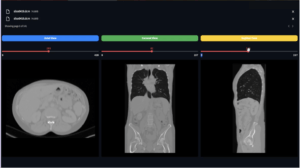The AI Revolution in Healthcare
Introduction
In an era where artificial intelligence (AI) is revolutionizing various sectors, its impact in the medical field has been particularly profound. One promising area is the use of deep learning algorithms for diagnosing complex conditions, such as Degenerative Spinal Conditions (DSCs).
Diagnosing Degenerative Spinal Conditions
DSCs are a significant global health concern due to their prevalence and their considerable impact on patients’ quality of life. They encompass a diverse set of pathologies that pose substantial diagnostic challenges, making early and accurate diagnosis crucial for effective management and treatment.
Deep Learning for Early Detection
A recent study has demonstrated the potential of deep learning in the early detection and classification of DSCs. Conducted by a team at Arrowhead Regional Medical Center in California, USA, the research used a public dataset of 967 spinal X-ray images to train a deep learning model on an online cloud-based AI platform.
A Robust Model for DSC Detection
The results were remarkable. The model demonstrated high accuracy and performance metrics, with an average precision of 0.88 and an overall accuracy of 89%. These metrics suggest the model’s robust ability to distinguish DSCs from normal X-ray images, thus acting as a cost-effective tool for enhancing early DSC detection and screening.
However, like any scientific study, it had limitations. The use of a public dataset restricted the variation of DSC cases, and the team was unable to obtain specific diagnostic criteria, potentially leading to bias. The authors also raised concerns about overfitting and the generalizability of the model across different populations. Despite these limitations, the study represents a significant step forward in utilizing AI to diagnose DSCs.
The Future of Deep Learning in DSC Detection
The future of this research holds exciting possibilities. The research team plans to extend their findings to a wider
What next?
For those interested in deepening their understanding of medical imaging, I’ve created a comprehensive Udemy course that covers everything you need to know. Lastly, to stay updated on the latest tutorials, tips, and tricks in computer vision and medical imaging, join my newsletter.
Stay curious, and happy learning!



